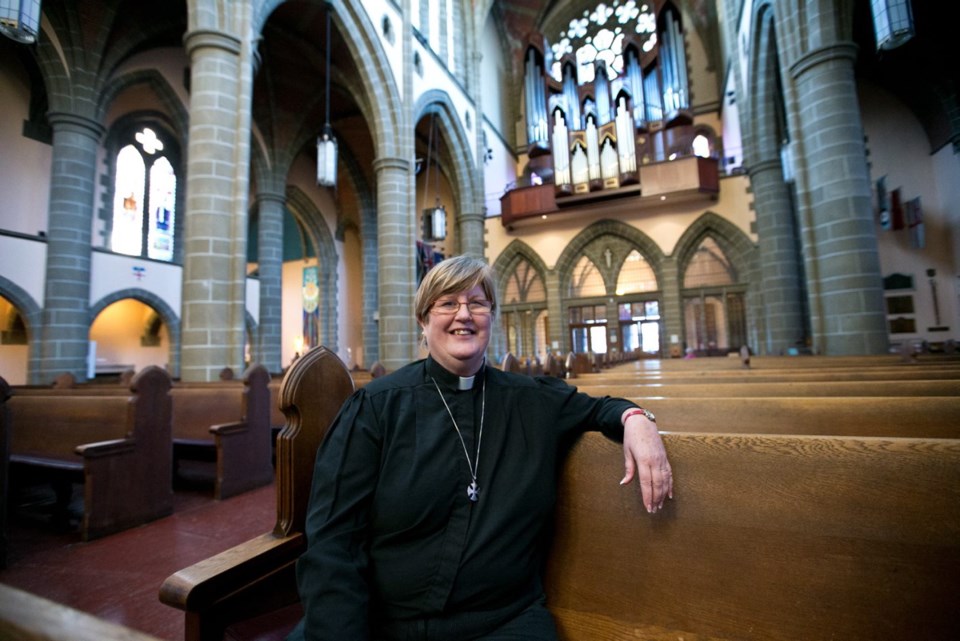Priests and selected parishioners from Vancouver Island and the Gulf Islands gather in Victoria today to elect a new bishop for the diocese.
The estimated 250 delegates, members of the what’s called the Electoral Synod, meet at Christ Church Cathedral on Quadra Street at Rockland Avenue to pray and celebrate Holy Communion at 9 a.m.
Afterward, the church will be cleared except for members of the Electoral Synod. They will begin what could be a series of ballots to select who will be the 13th bishop of the Anglican Diocese of British Columbia.
The bishop will be selected from a list of six nominated priests, all men this time. Five are from churches on Vancouver Island and one is from New Zealand.
The name, Diocese of British Columbia, is only a result of history. It includes only the 43 parishes on Vancouver Island and the Gulf Islands and their 8,000 parishioners.
Rev. Sue House, clerical secretary of the Diocesan Synod, said the candidates for bishop do no campaigning and make no speeches. Instead, they supply written responses to questions from the Electoral Synod.
“There is nothing that we would call a dog-and-pony show,” House said.
Church people like to think of the balloting process more as a “discernment” than an election, she said. As priests and practising Christians, members of the Electoral Synod are hoping prayer and inspiration will allow them to learn who God is calling to be the next bishop.
“It’s not just about marking an X on the ballot,” House said. “It’s about listening to God tell us who is the best for the diocese.
“God willing, we will choose someone who is a wise leader.”
She explained the Diocese of British Columbia was never incorporated, so legally speaking, the bishop becomes the personification of the diocese.
The bishop always listens to counsel, but ultimately that person is responsible for religious matters, such as marriages and baptisms, business decisions, administration and acting as chief spokesperson.
“It’s a huge responsibility,” House said. “It’s not just looking pretty in the clothes.”
Whoever is selected replaces Rev. James Cowan, who retired on Aug. 31 after nine years. When he retired, Cowan was 61, nine years ahead of mandatory retirement age for the bishop.
During his period of leadership, the diocese moved to bless same-sex unions once the couple had undergone a civil marriage. The move came after some years of bitter dispute during which some parishes tried to separate from the church.
But when it was announced last January, it was received with little fanfare.
Cowan has said a tougher issue for him was an administrative restructuring of the diocese.
Several large “hub” parishes were created. But at the same time, eight small parishes were closed, a move that upset some longtime churchgoers who missed their spiritual home.



